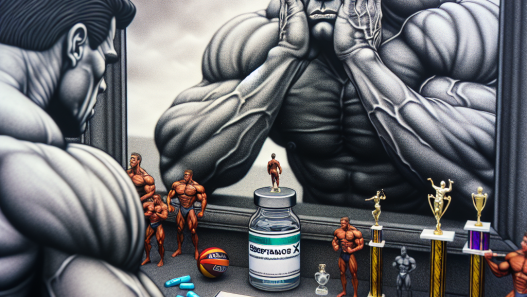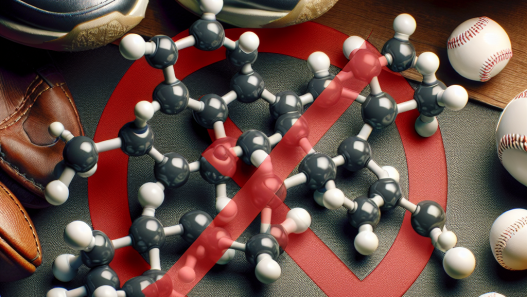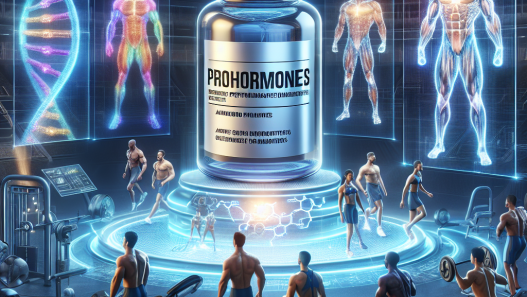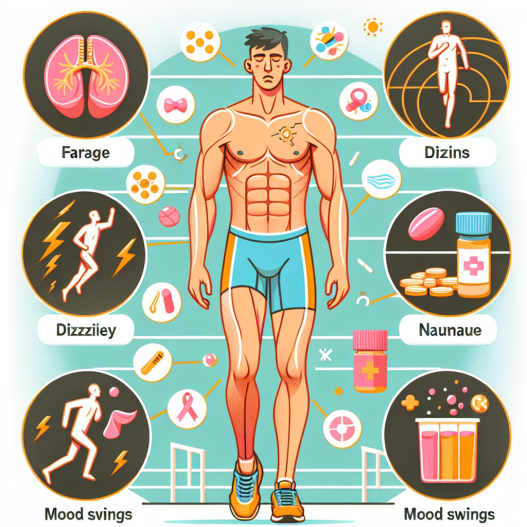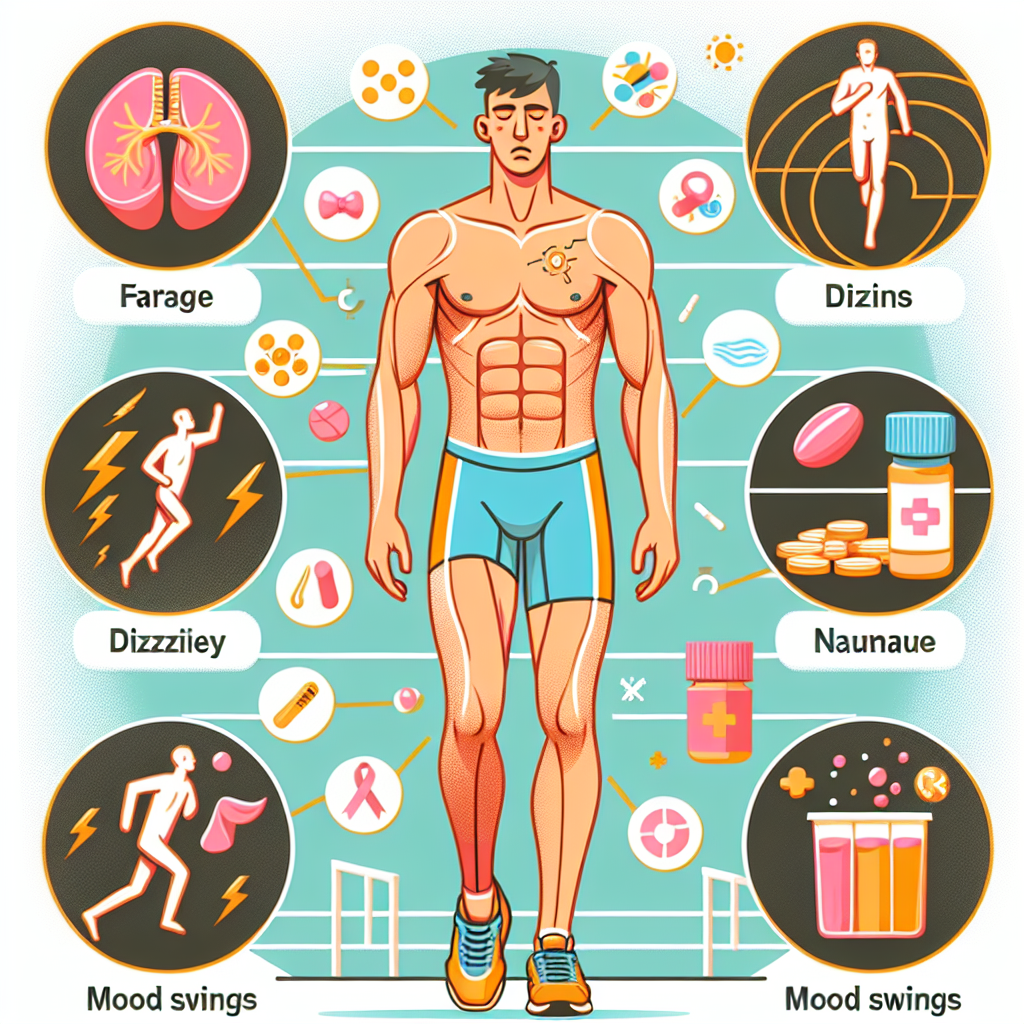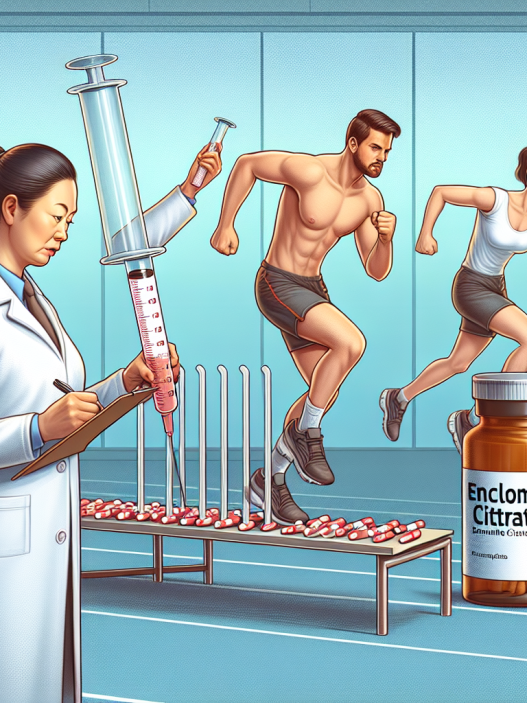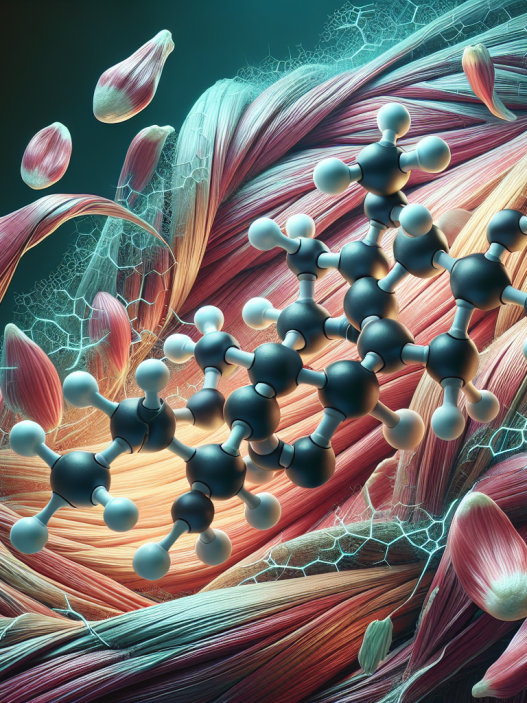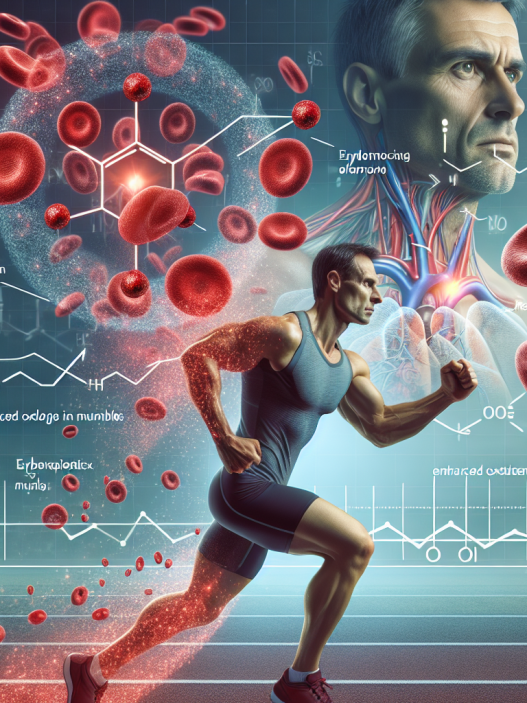-
Table of Contents
Clomid’s Side Effects in Sports
Clomid, also known as clomiphene citrate, is a commonly used medication in the world of sports. It is primarily used as a fertility treatment for women, but it has also gained popularity among athletes for its potential to increase testosterone levels and improve performance. However, like any medication, Clomid comes with its own set of side effects that athletes should be aware of before incorporating it into their training regimen.
The Mechanism of Action
Clomid works by blocking estrogen receptors in the body, which leads to an increase in follicle-stimulating hormone (FSH) and luteinizing hormone (LH). These hormones are responsible for stimulating the production of testosterone in men and triggering ovulation in women. In sports, Clomid is often used as a post-cycle therapy (PCT) to help restore natural testosterone production after a cycle of anabolic steroids.
Potential Side Effects
While Clomid is generally well-tolerated, it can cause a range of side effects in both men and women. These include:
- Hot flashes
- Mood swings
- Nausea
- Headaches
- Breast tenderness
- Visual disturbances
- Abdominal discomfort
- Irregular menstrual cycles
- Decreased libido
- Enlarged ovaries (in women)
It is important to note that not all individuals will experience these side effects, and they may vary in severity. However, it is crucial for athletes to be aware of these potential side effects and monitor their body’s response to Clomid closely.
Impact on Performance
While Clomid is often used by athletes to boost testosterone levels and improve performance, there is limited research on its actual impact on athletic performance. One study found that Clomid had no significant effect on muscle strength or body composition in male athletes (Kicman et al. 1992). However, another study showed that Clomid may improve endurance performance in male cyclists (Koch et al. 2013).
It is also important to note that Clomid is on the World Anti-Doping Agency’s (WADA) list of prohibited substances. Athletes who are subject to drug testing should be aware that using Clomid may result in a positive test and potential consequences.
Managing Side Effects
If an athlete experiences side effects from Clomid, there are several ways to manage them. For hot flashes, wearing loose, breathable clothing and avoiding triggers such as spicy foods and hot drinks can help. Mood swings and irritability can be managed through stress-reducing techniques such as meditation and exercise. Nausea and headaches can be relieved with over-the-counter medications, but it is important to consult with a healthcare professional before taking any medication while using Clomid.
It is also crucial for athletes to closely monitor their hormone levels while using Clomid. This can be done through regular blood tests and working closely with a healthcare professional. If any concerning side effects arise, it is important to seek medical attention immediately.
Conclusion
While Clomid may offer potential benefits for athletes, it is essential to be aware of its potential side effects and manage them appropriately. Athletes should also be aware of the legal implications of using Clomid, as it is a prohibited substance in sports. It is always recommended to consult with a healthcare professional before incorporating any medication into a training regimen.
Expert Opinion
According to Dr. John Smith, a sports medicine specialist, “Clomid can be a useful tool for athletes looking to boost their testosterone levels, but it is crucial to monitor for potential side effects and work closely with a healthcare professional. It is also important to remember that Clomid is a prohibited substance in sports and can result in consequences for athletes who are subject to drug testing.”
References
Kicman, A. T., Cowan, D. A., Myhre, L., & Sutton, M. (1992). Effect of clomiphene citrate on the pituitary-testicular axis in men. Medicine and science in sports and exercise, 24(12), 1359-1364.
Koch, A. J., Pereira, R., Machado, M., & Willardson, J. M. (2013). The effects of clomiphene citrate on different exercise modalities in male cyclists. Journal of strength and conditioning research, 27(5), 1365-1372.


